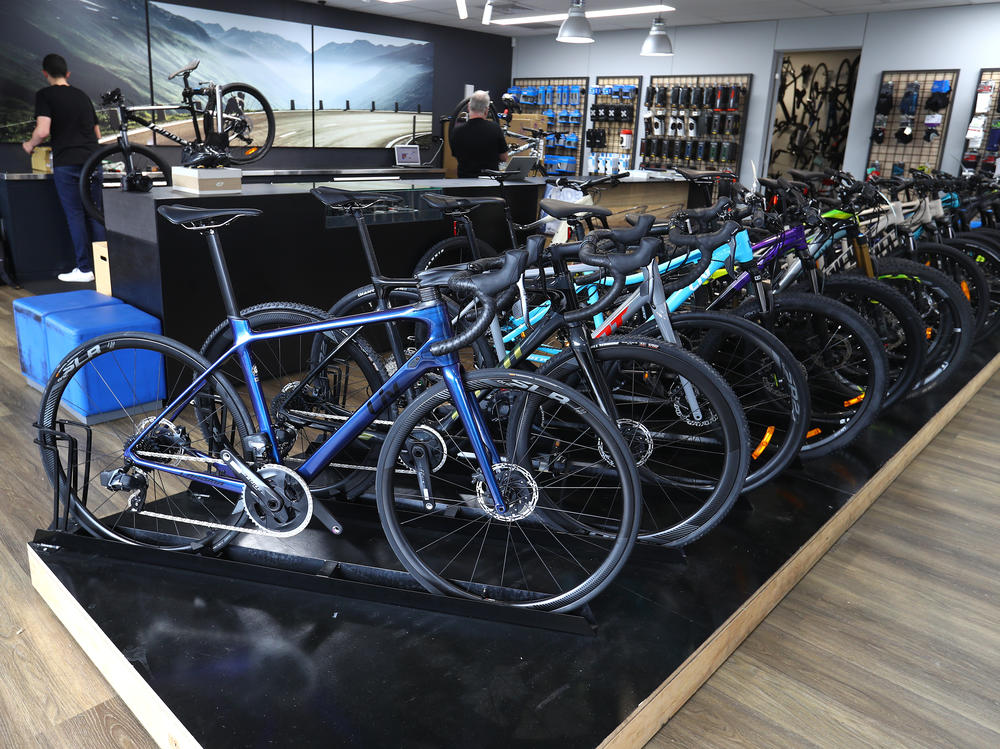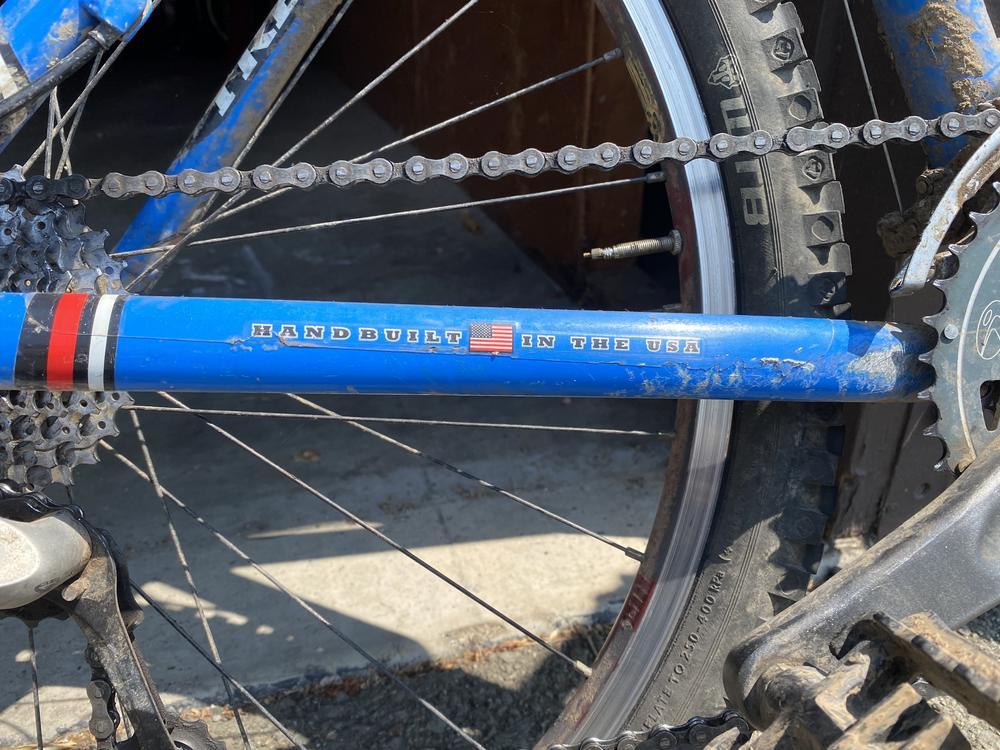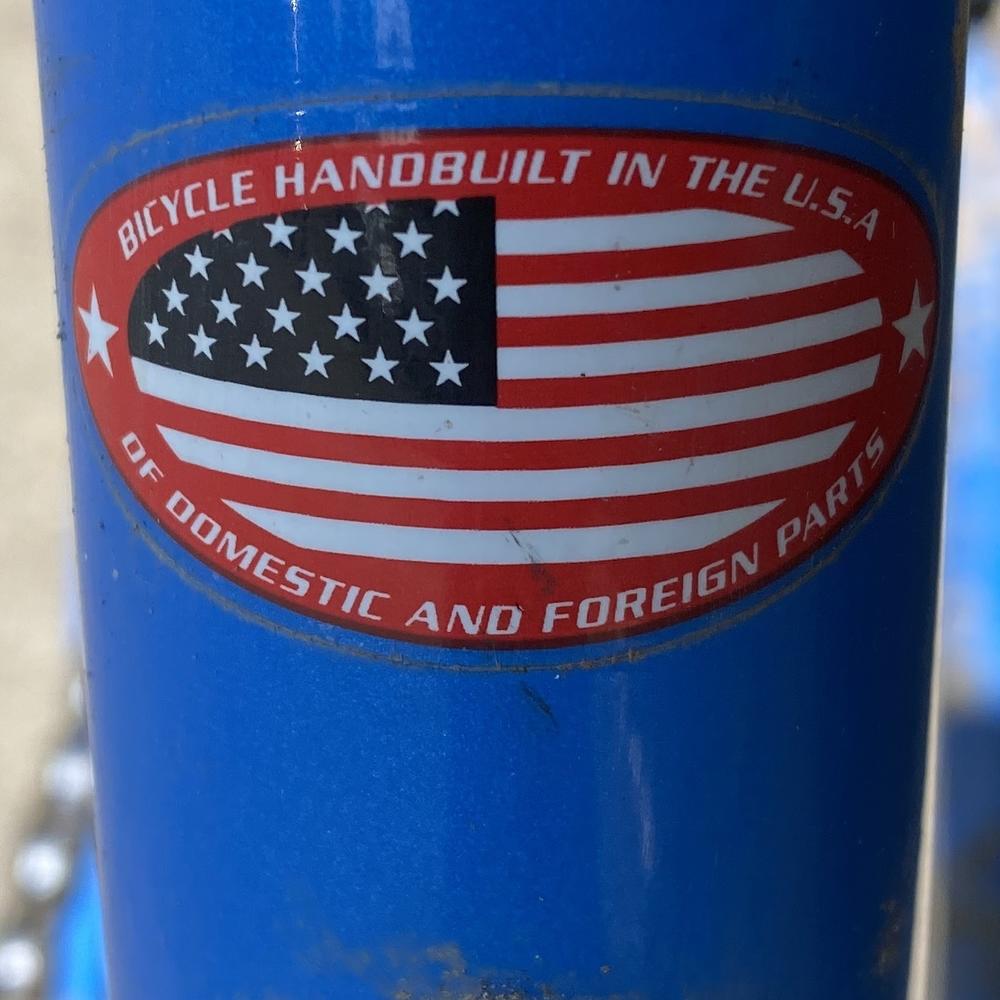Section Branding
Header Content
What Bikes Tell Us About A Changing Global Economy
Primary Content
Editor's note: This is an excerpt of Planet Money's newsletter. You can sign up here.
The executives at Trek Bicycle can pinpoint the day they realized the bike market was going berserk. "April 12," says Eric Bjorling, the director of brand marketing for the company. "That's when we knew we had something on our hands."
Trek had originally believed this recession would be typical — and that demand for bikes would crash. But on April 12, the people at Trek noticed a record number of visitors to their website and an enormous volume of orders from retailers. They knew then that this recession was going to be different.
The virus has made public transportation radioactive, so city dwellers have wanted alternative modes of transport. Gyms are closed, so fitness freaks have wanted to exercise outdoors. Young professionals with jobs are saving money by not going out, and they have extra cash to burn on durable goods. And everyone is mostly at home, bored as hell, looking for something to do.
"And the bicycle was sort of perfectly positioned to fit all those needs," Bjorling says.
Trek, like other bike manufacturers, has seen a surge in global demand. But starting in December, as COVID-19 spread through Asia, lockdowns derailed their supply chain. Bikes, like a lot of other products, stopped getting made. It has been the latest in a series of disruptions to global supply chains that has pushed companies like Trek to reevaluate how and where their products are getting made.
In 1976, Dick Burke and Bevil Hogg founded Trek by making bikes in a small red barn in Waterloo, Wis. I actually own an old Trek mountain bike that's red, white and blue and has two stickers that proudly declare "Handbuilt In The USA."
But in the late 1980s and early '90s, Bjorling says, Trek followed other bike manufacturers in shifting most of their production to China and Taiwan. Every bike is now an amalgamation of parts — wheels, spokes, seats, derailleurs, chains, brakes and so on — that are sourced from suppliers around the world. "The cycling industry is very supply chain dependent," Bjorling says. "You might have as many as 50 suppliers to make one bike."
Even if something is "manufactured" in the United States these days, it's often using parts made overseas. (Even my bike, which was made in the '90s, says "Bicycle Handbuilt In The U.S.A. Of Domestic And Foreign Parts" on one of the stickers.) These global supply chains, or "global value chains," have become the cardiovascular system of the world economy. According to the World Bank, over two-thirds of all global trade occurs through them.
Recently, however, it seems like everyone is reevaluating how and where supply chains function in the face of rising threats. A recent report from McKinsey Global Institute estimates that, over the next five years, companies will change their supply chains in a huge way. It estimates that "16 to 26 percent of exports, worth $2.9 trillion to $4.6 trillion in 2018, could be in play — whether that involves reverting to domestic production, nearshoring, or new rounds of offshoring to new locations."
In response to the recent disruptions to global supply chains, Carmen Reinhart, the chief economist of the World Bank, recently said, "COVID-19 is like the last nail in the coffin of globalization."
Another impetus for rejiggering supply chains has been the Trump administration's trade war against China, which has included major import tariffs on a whole slew of products, including for a time, bikes. Bjorling says the trade war has increased Trek's production costs and also created a lot of uncertainty because the rules keep changing. First bikes were subject to tariffs, and then they weren't. "It's been really difficult for us," Bjorling says.
Research shows Trump's trade war has increased costs for American consumers, but it also seems to be working to squeeze the Chinese economy. According to a recent report from Baker McKenzie and Silk Road Associates, China's share of global exports shrank by 3 percentage points last year, from 25% to 22%.
While there has been much hubbub about "reshoring" manufacturing back home, the trade war with China has so far mostly just shifted production to other countries, says Stephen Roach, an economist at Yale who previously served as chairman of Morgan Stanley Asia.
Bjorling says it's feasible that bike companies could reshore manufacturing to the states, but currently "it would be very hard to remain competitive at any kind of volume."
If the trade war with China continues, rather than massive reshoring, we'll more likely see U.S.-centric manufacturing merely shifting to other foreign countries. The chairman of Foxconn — which is a key supplier in supply chains for products such as the iPhone, Xbox, BlackBerry, and Kindle — recently told The Financial Times he foresees global supply chains splitting into two groups. "It will be one for China and those associated with it and another for the U.S. and their friends," he said.
It's possible the trade war will blow over and the immense incentives for companies to make products as cheaply and profitably as possible will continue to prevail. But if the trade war continues, it will mean more expensive bikes. That is, if you can get your hands on one.
Did you enjoy this newsletter segment? Well, it looks even better in your inbox! You can sign up here.
Copyright 2020 NPR. To see more, visit https://www.npr.org.



